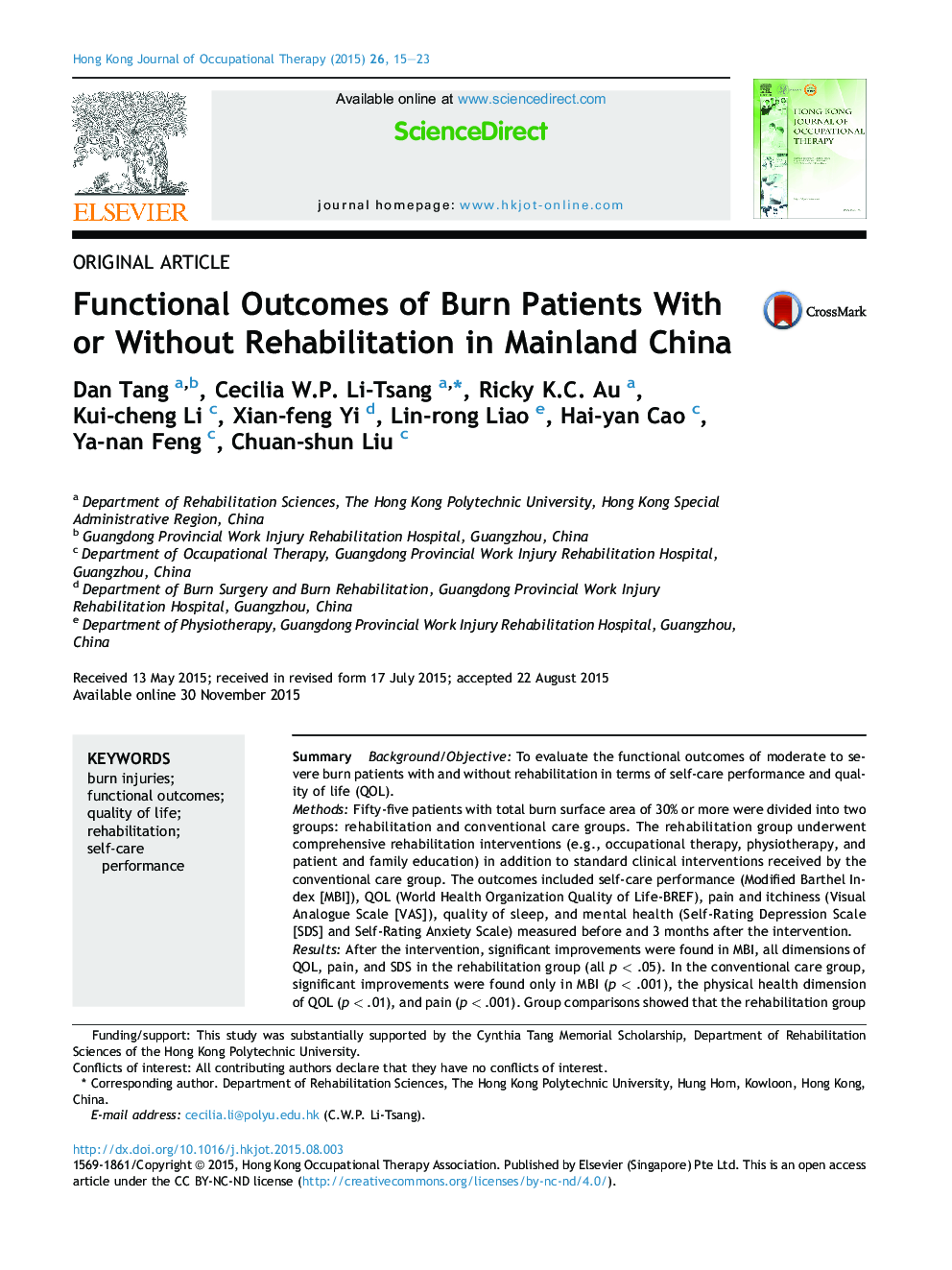| Article ID | Journal | Published Year | Pages | File Type |
|---|---|---|---|---|
| 2690476 | Hong Kong Journal of Occupational Therapy | 2015 | 9 Pages |
SummaryBackground/ObjectiveTo evaluate the functional outcomes of moderate to severe burn patients with and without rehabilitation in terms of self-care performance and quality of life (QOL).MethodsFifty-five patients with total burn surface area of 30% or more were divided into two groups: rehabilitation and conventional care groups. The rehabilitation group underwent comprehensive rehabilitation interventions (e.g., occupational therapy, physiotherapy, and patient and family education) in addition to standard clinical interventions received by the conventional care group. The outcomes included self-care performance (Modified Barthel Index [MBI]), QOL (World Health Organization Quality of Life-BREF), pain and itchiness (Visual Analogue Scale [VAS]), quality of sleep, and mental health (Self-Rating Depression Scale [SDS] and Self-Rating Anxiety Scale) measured before and 3 months after the intervention.ResultsAfter the intervention, significant improvements were found in MBI, all dimensions of QOL, pain, and SDS in the rehabilitation group (all p < .05). In the conventional care group, significant improvements were found only in MBI (p < .001), the physical health dimension of QOL (p < .01), and pain (p < .001). Group comparisons showed that the rehabilitation group achieved significantly better outcomes after the intervention in MBI (p < .001), VAS score of itching (p = .009), and the physical health (p = .002), psychological health (p = .021), and social relationships dimensions of QOL (p < .001).ConclusionPatients with moderate to severe burn injuries can benefit from rehabilitation interventions in terms of physical health, mental health, performance of daily living, and QOL.
